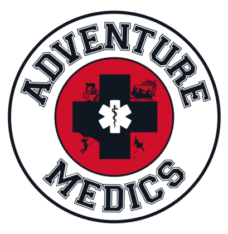What areas of employment does Adventure Medics offer?
Events – EMR/WFR and higher
Wildland – ambulance EMTs and Paramedics, fireline EMTs and Paramedics, camp/mobile med base EMTs, Paramedics, RNs and PAs, and REMS Team members
Interfacility Transport – EMTs, Paramedics, Critical Care Paramedics, Critical Care Nurses, Drivers
I don’t live in Bend, OR, Southwest, WA, or Central AZ, can I still work for you?
Typically, our Events and Interfacility Transport staff live in either Oregon, Washington or Arizona. For fire, staff usually live west of the Continental Divide (with some exceptions).
What training/certifications do I need?
Events positions – you need a State EMS license in Oregon, and/or Washington, and/or Arizona, as either a Paramedic or EMT (we also hire PAs, Nurses, Doctors) before applying. You will need to keep your license current and remain in good standing with the certifying body. In addition, you will need a BLS or ACLS card depending on your license level.
Wildland positions – you will need a valid State EMS license (preferably an EMS Compact State) and preferably a National Registry certification. A valid BLS card is also required. In order to obtain the required “Red Card” you will have to have completed the online S-190, L-180, and S-130 courses prior to the start of our pre-season orientations. AdvMed conducts at least three preseason S-130 Field Day classes. Additional pre-season required courses include ICS 100, ICS 200, IS-700, and IS-800 and some sort of UTV/ATV Safety course.
REMS positions – all the same requirements as Wildland positions, with additional preferred qualifications including RRO/RRT, Vehicle Extrication, FFT1, CRWB, and/or ICT5.
For all positions you will be required to pass a fitness test to ensure you can meet the physical requirements of the job
What are your physical test requirements?
Basic PT test requirements for Events include:
- 2 mile run with variable elevation in under 24 min
- 80Ib Farmers Carry for approximately 1/3 mile
- Hand-over-Hand weighted rope haul (x2)
- 2 min of adequate and correct chest compressions on a mannikin
- All exercises need to be completed in under 35 min
Basic PT requirements for Wildland include:
- Arduous Pack Test (3 mile walk with 45lb pack within 45 mins)
- 80lb Farmer’s Carry for approximately 1/3 mile
- Hand-over-Hand weighted rope haul (x2)
- 2 mins of adequate and correct chest compressions on a mannikin
Note that there are additional, much stricter PT requirements required for REMS position.
What are the availability requirements for each division?
Events: Staff are split into part time (0-10hrs/week) seasonal and full time (30-40hrs/week) seasonal employees. There are also monthly mandatory trainings. The season for events work typically begins around May of each year and goes until the end of October
Wildland/REMS: Fire is unpredictable, and no work is guaranteed. Busier seasons can have employees working 90+ days on fire. You are expected to be available for 21-day rotations, travel excluded. Fire season typically starts around May/June (although we can be called for resources earlier) and ends in late October, but again, fire season is very unpredictable.
What does your compensation look like?
Events Division (seasonal part-time):
EMR and EMT $23-$26/hr DOE
AEMT and I-EMT $26-$27/hr DOE
Paramedic $28-$30/hr DOE
Wildland Division (seasonal temporary):
EMT: $500-600/day DOE
AEMT: $525-625/day DOE
Paramedic: $725-825/day DOE
Nurses/Physician Assistant: DOE
REMS: $725 minimum per day while on fire assignment. Pay bonuses for team leads, paramedic, FFT1/CRWB, and EMT-I/EMT-A
Transport Division (full-time, part-time, and per diem):
EMT $25/hr DOE
Paramedic $30/hr DOE
Critical Care Paramedic $30-36/hr DOE
Uniform, Travel and Training paid for. Additional Benefits available for full time staff include; Health/Dental/Vision insurance, 401(k) plan
Do you accept volunteers?
Unfortunately, no. Due to employment laws we are unable to utilize volunteers.
I want to get into this field, can you recommend some courses to take or skills to learn?
We use a wide variety of skills throughout all our divisions. Having a solid background in patient care should be a priority. Working or volunteering in some EMS capacity will be beneficial. Additionally, for our Wildland and Events crew knowing how to use radios, satellite communication, ATV/UTVs, map reading and navigating skills are a huge plus. We also have opportunities for those who have their motorcycle licenses.

